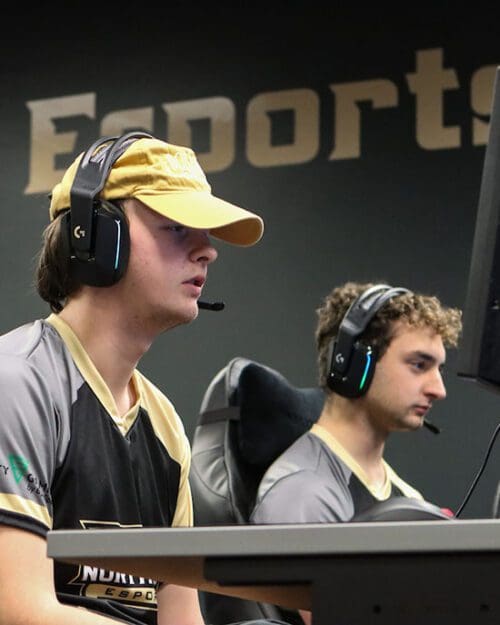PNW Esports helps grow the game in Northwest Indiana

As collegiate Esports continues to build momentum among young players, PNW Esports is branching out through hosting and recruiting to connect with Northwest Indiana students and show them the possibilities where their interests can take them.
Justin Bragg, Purdue University Northwest (PNW)’s head Esports coach, considers recruiting a “wild, wild west” as the sport continues to gain popularity at the collegiate level.
Since 2020, PNW Esports has grown to 140 students, including 40 varsity players and 100 Esports club participants. Bragg notes that Esports has expanded significantly nationwide since 2014 when universities and colleges first began offering scholarships to Esports student-athletes.
Part of the next steps in growing the game means helping build up the clubs in local schools where new Esports players are exploring their interests. With state-of-the-art Esports arenas, PNW Esports is in a prime position to make connections with local clubs, bringing in students and their coaches to use their equipment and preview a collegiate competitive Esports atmosphere. Bragg also notes the PNW Esports arenas have the computer and internet infrastructure to allow for optimal speed and access while gaming.
“I think the biggest problem at the high school level is finding the resources to start a team,” said Bragg, “whether that is monetary resources or time. They might not have anyone at the school who has any idea of what Esports is or how to help the students out.
“I think we’re doing what we can to help foster that growth. If high schools aren’t able to provide those resources, we offer our spaces for students.”
Bragg says about 45 high schools in Indiana and 70 high schools in Illinois have established competitive Esports clubs or teams. PNW Esports has branched out to clubs at Hammond Central, Hobart, Michigan City, and Munster high schools to allow their students to use PNW’s Esports arenas for meetings and practices. Queen of All Saints Catholic School in Michigan City has also brought its students monthly to PNW’s Westville Esports arena for recreation, often as a reward for good behavior, says Bragg.
I think we’re doing what we can to help foster that growth. If high schools aren’t able to provide those resources, we offer our spaces for students.
“The elementary and middle school kids are just high-energy,” said Bragg. “The high school kids tend to be more competitive since they’re more interested in it. At that point they’re asking what we would recommend they can do better or how to get recruited if they want to play at college.”
By visiting a collegiate-level Esports arena, skillful high school Esports players also receive exposure to PNW’s student-athletes and coaches for advice to grow their abilities, or even to eventually find a place among the Pride.
“We get questions from players who aren’t experienced at all to those who are becoming high-level players, and they’re just trying to find that small edge to be even better and get noticed by colleges,” says Bragg.
